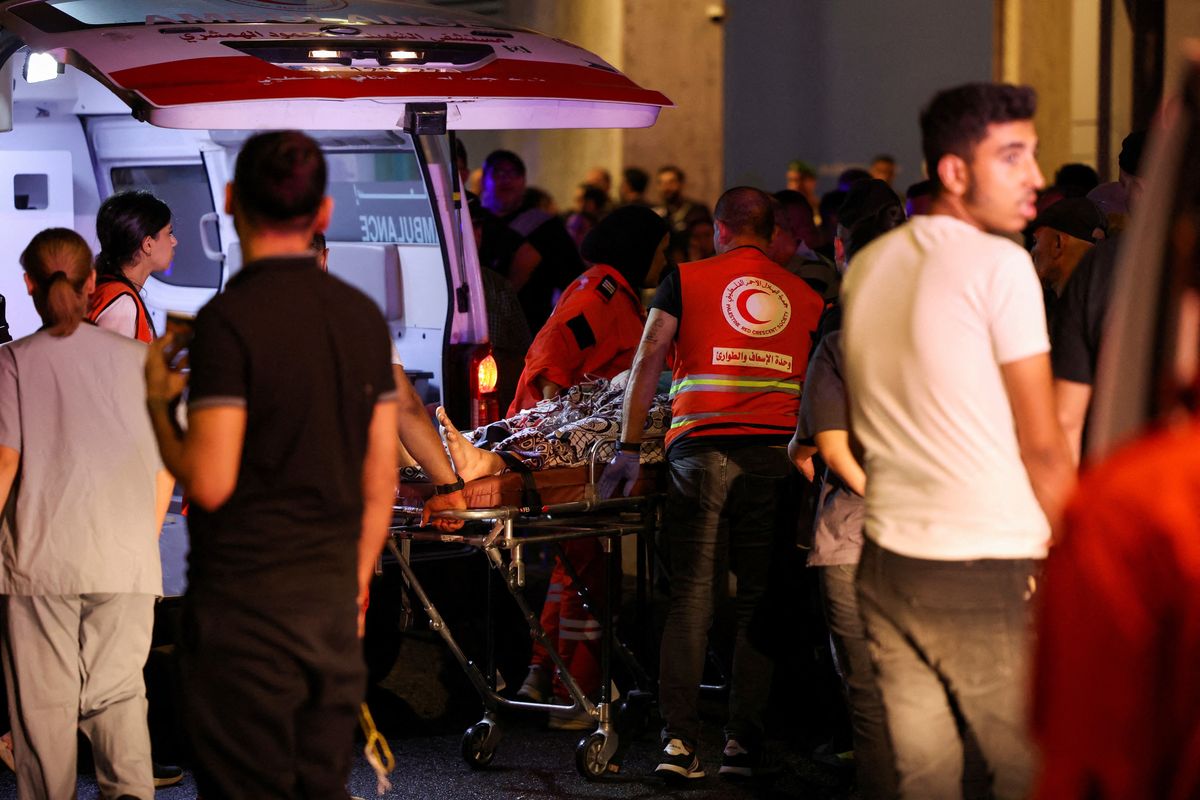37 dead, 2,931 injured in telecom device explosions: Lebanese health minister
Investigations deepen as Lebanon grapples with explosions that killed 37
Dubai Desk
The Dubai Desk reports on major developments across the UAE, covering news, culture, business, and social trends shaping the region.

Lebanon’s medical sector is overwhelmed as hospitals struggle to treat thousands of injured in the wake of the blasts.
Reuters
Lebanon is grappling with the aftermath of a series of devastating explosions linked to telecommunications devices, leaving the nation in shock and prompting serious security concerns. Over the past two days, the death toll has climbed to 37, with 2,323 people injured on September 17 alone.
Of those, 1,343 sustained moderate to severe injuries, and 226 are currently in intensive care units. On September 18, another 608 were injured, including 61 critical cases requiring intensive care, according to Lebanese Health Minister Firass Abiad.
Minister Abiad said on Thursday that 64 hospitals across Lebanon are now treating the injured. He emphasized that the fatalities occurred in civilian areas, not conflict zones.
The Lebanese Red Cross has mobilized 150 ambulances and 450 paramedics in response. In a press conference, Abiad expressed gratitude for the widespread solidarity. “We, as Lebanese, appreciate the initiatives provided by our Arab brothers as well as by the Lebanese who are trying to help,” he said.
How did the electronic devices detonate?
Reutersroar-assets-auto.rbl.ms
The explosions have been traced back to wireless communication devices used by Hezbollah members. Sources from Reuters suggest that Israel may have been involved in planting explosives in the pagers.
The New York Times (NYT), citing three intelligence sources, reported that the pagers, held by thousands of Hezbollah members, are believed to have originated from an Israeli front company.
According to BAC Consulting, an American media outlet, the Hungarian company that allegedly sold the booby-trapped pagers to Hezbollah was merely a "shell company." The publication added that the company was, in fact, "Israeli", and manufactured the devices on behalf of the Taiwanese firm Gold Apollo.
The NYT article further reveals that at least two other companies were established to conceal that the pagers were actually produced by Israeli intelligence agents.
How is the world reacting?
The international community has not turned a blind eye to these events. Taiwan’s security agencies have indicated they are closely monitoring the situation and are ready to cooperate with Lebanese authorities.
The use of Taiwan-made pagers in these incidents has put the island's security bodies on high alert, emphasizing the need for a thorough investigation into how these devices ended up in Hezbollah's hands and were subsequently rigged with explosives.
Japan’s Icom Inc., whose logo appears on some of the affected devices, has also initiated its own investigation. The company has been in contact with Lebanese authorities to understand how their products could have been used in such a manner.
“We are taking this issue seriously and are committed to cooperating fully with the investigation,” a representative from Icom told Reuters.
What does this mean for Hezbollah?
Hezbollah’s extensive and sophisticated communications network has long been a point of contention in Lebanon, viewed by some as a necessary means of maintaining security and by others as a threat to national sovereignty.
The recent explosions have not only highlighted the potential vulnerabilities within this network but have also sparked fears of further escalations.
Israeli sources on Reuters that the decision to target Hezbollah’s communication devices was part of a broader strategy to disrupt the group's capabilities without direct confrontation. However, the collateral damage, including civilian casualties and widespread panic, has led to condemnation from various international entities.
The aftermath
As Lebanon faces the fallout from these events, its government is under pressure to protect its citizens. The already fragile healthcare system, strained by the ongoing economic crisis, is struggling to manage the surge of injuries.
Abiad’s recognition of the support from both local and international communities underscores the urgent need for collective action to address the crisis.










Comments
See what people are discussing